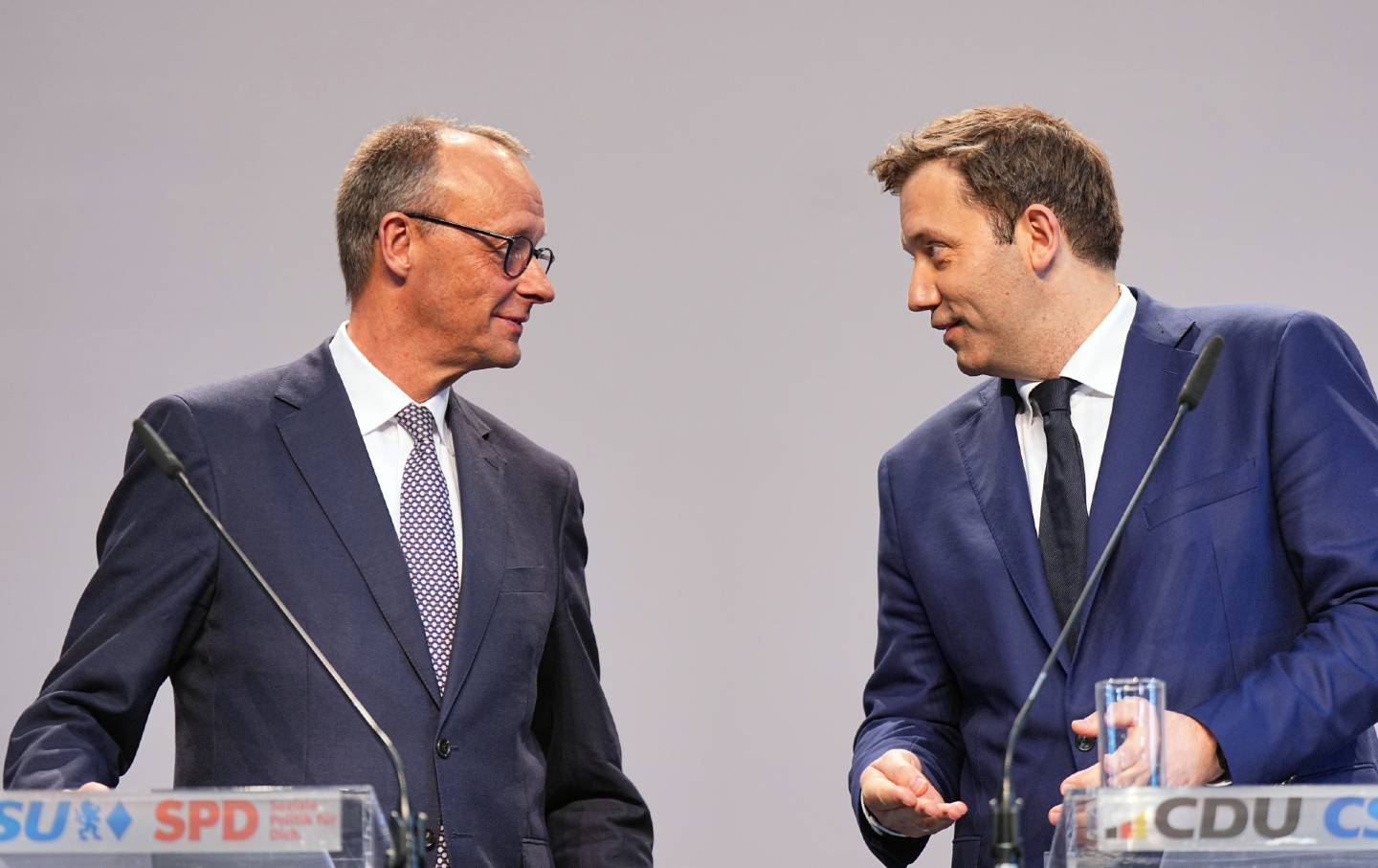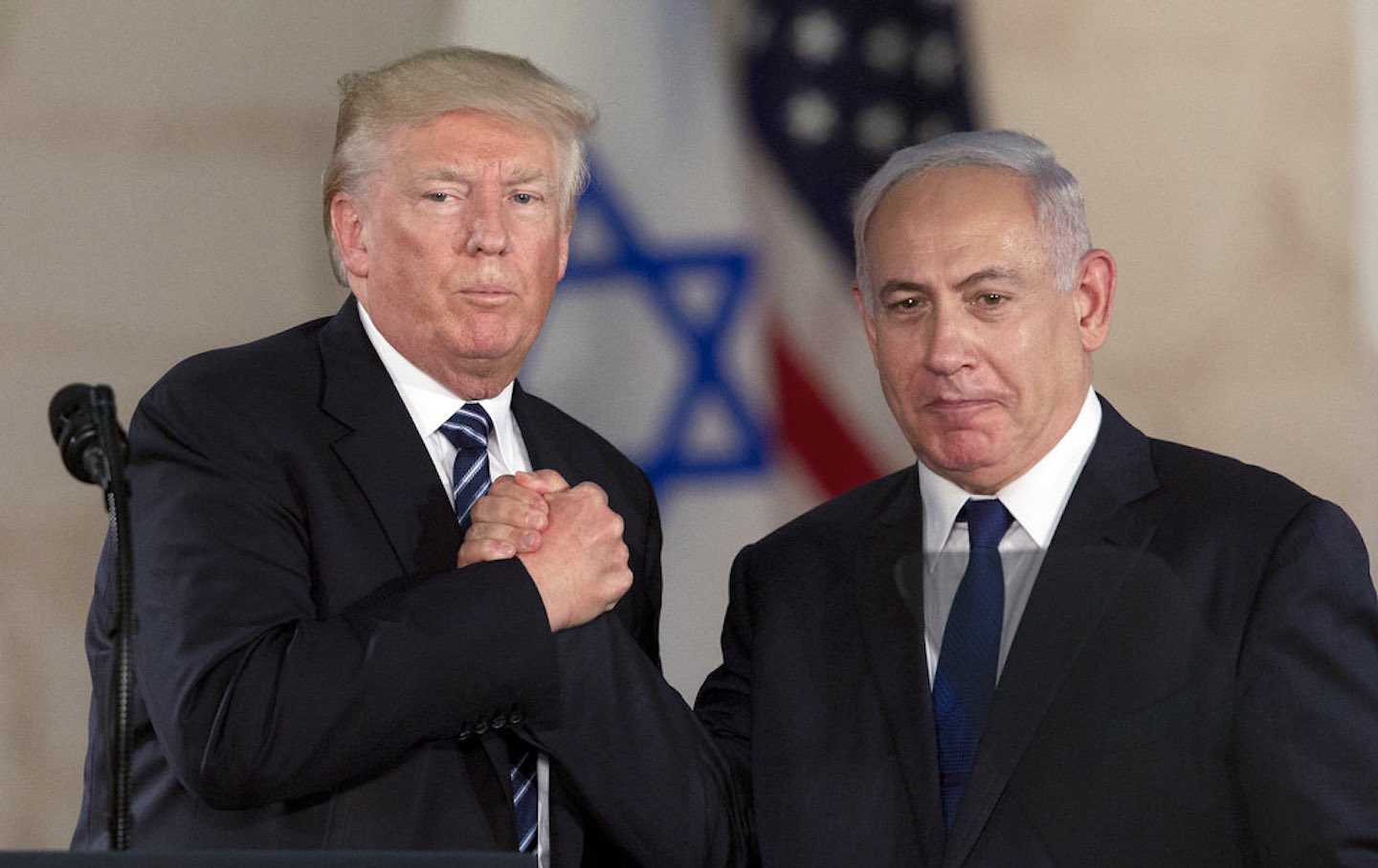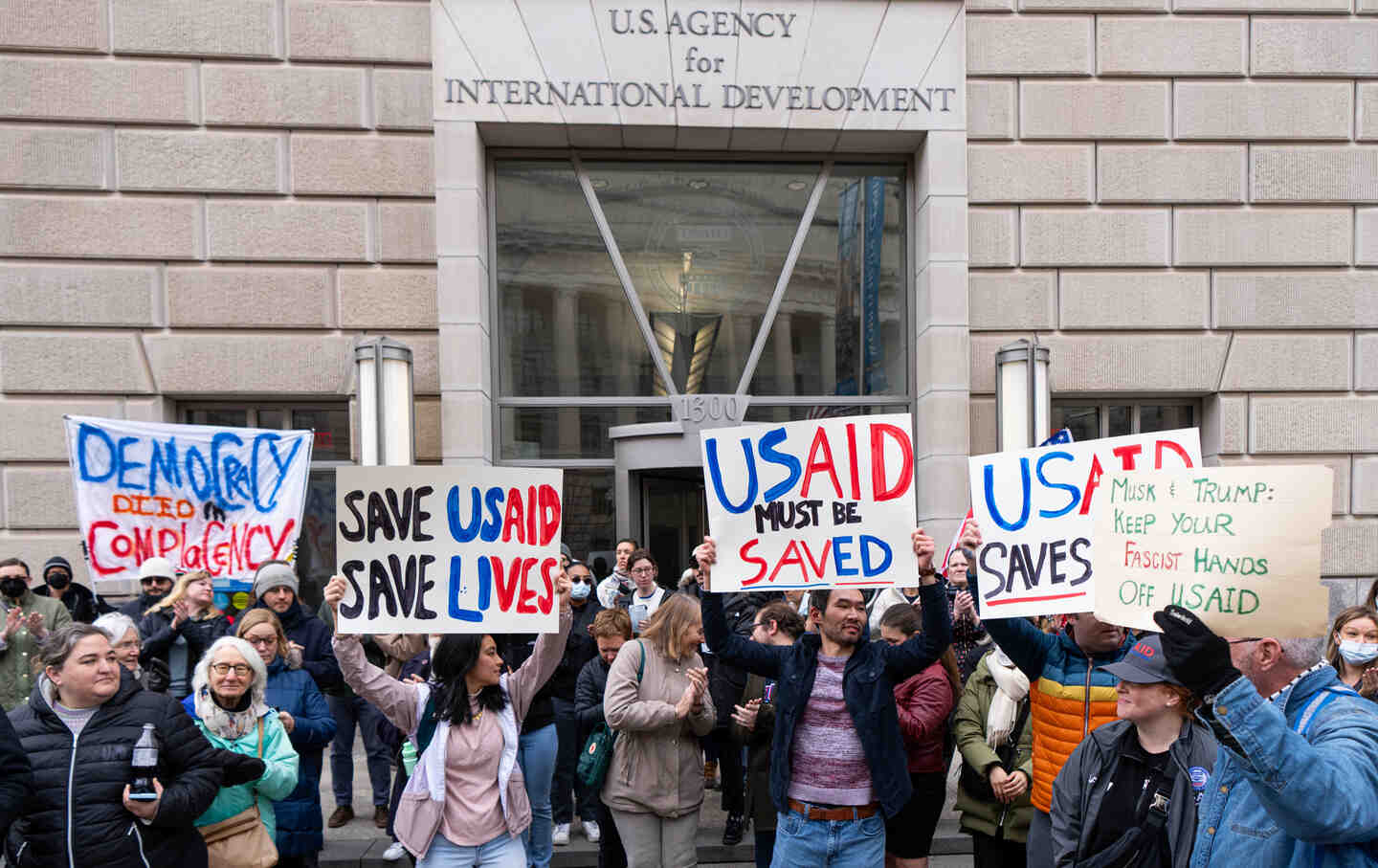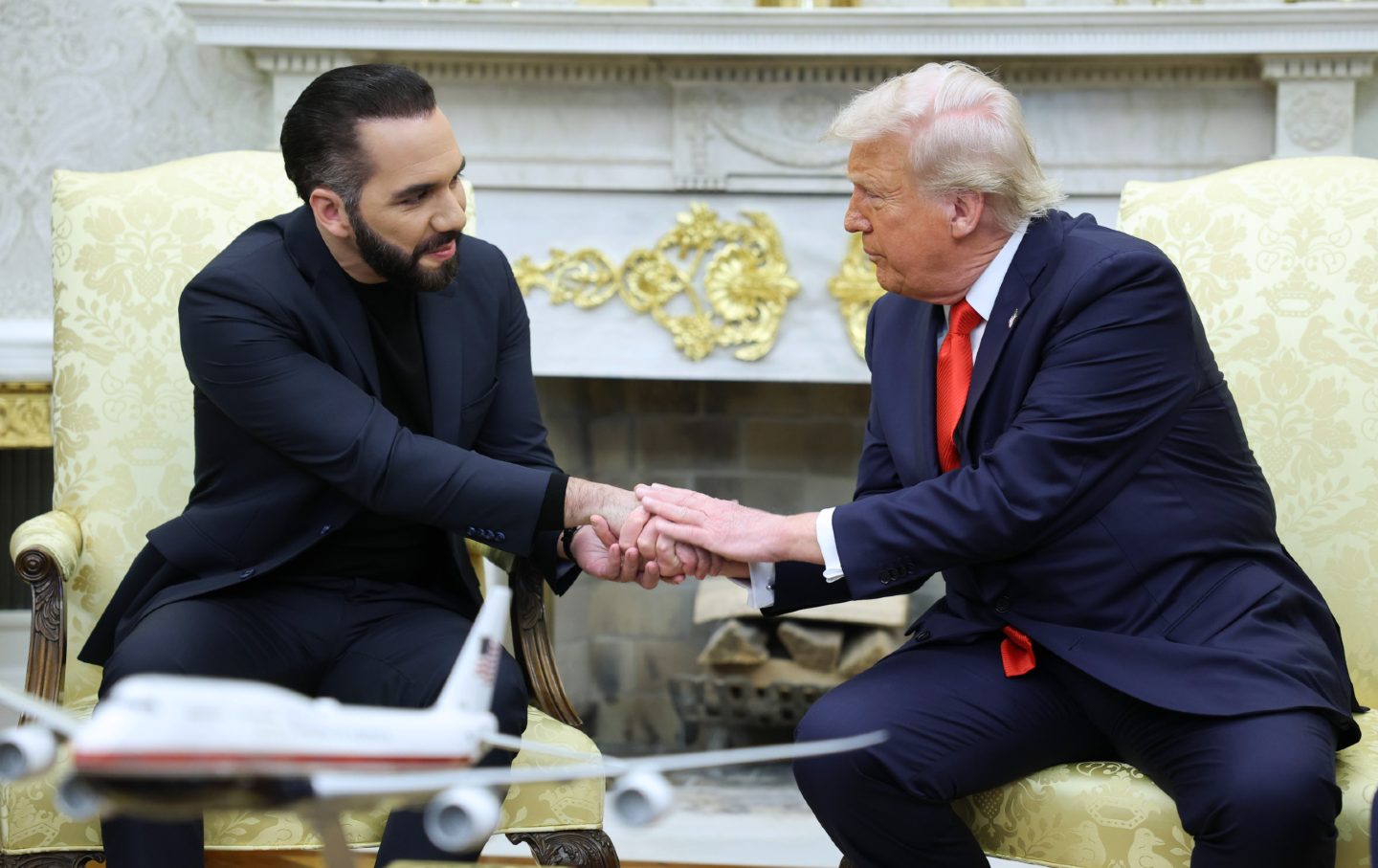Is the nation’s newest grand coalition a shaky marriage of comfort—or “democracy’s final bullet”?

Berlin—“It might have been worse,” mentioned Kai Arzheimer, once I requested him about his response to the German election outcomes. Arzheimer, a professor of political science on the College of Mainz, was articulating the response of many progressives following the February 23 snap German elections.
The middle proper CDU/CSU alliance (with 208 seats) and the middle left SPD (with 120 seats) every managed to get simply sufficient seats to type a ruling coalition with one another. The far-right AfD (with 152 seats) bought extra assist than it ought to have, however no more than was expected. Die Linke, the Left Celebration, rallied within the weeks simply earlier than the election and did higher than anticipated. And the Greens had a poor displaying, however finally will type a part of a progressive block in Parliament.
In the meantime, a few of the smaller events that might have difficult coalition negotiations didn’t attain the 5 % threshold wanted to enter the Bundestag this time in any respect. The professional-business FDP, who performed a pivotal function within the breakdown of Germany’s latest coalition authorities, is now out. Likewise, the BSW, thought-about left-wing on financial points and right-wing on immigration, which fashioned when Sahra Wagenknecht (who named the brand new get together for herself) and her supporters broke away from Die Linke, additionally didn’t make it in. So Germany now has one other Grand Coalition, or GroKo, with the nation’s two largest mainstream events.
You’ll find any variety of articles asking, “Who’s Friedrich Merz?” Sixty-nine years previous, reedy in his darkish enterprise fits, and seemingly by no means doubting he was meant to be in a management function, the CDU chief didn’t turn into chancellor throughout a number of earlier tries and felt sidelined when Angela Merkel succeeded in doing so as a substitute. He left parliament for a time, specializing in his work in company regulation. He reportedly needs to drag the CDU to the right; his anti-migration stance typically drifts into outright xenophobia, and in comparison with Merkel on social issues he has been regressive.
It’s the coalition—and the necessity to work alongside the SPD—that may hold his worst tendencies from translating into coverage.
And, proper now, in a time of some horrible leaders, Merz seems to be prepared to face up in opposition to them. Traditionally a passionate transatlantacist, he announced shortly after the elections that his “absolute precedence shall be to strengthen Europe as shortly as potential in order that, step-by-step, we will actually obtain independence from the USA.” He by no means imagined earlier than that he must say this. “We’re below such huge strain from two sides that my absolute precedence now actually is to create unity in Europe,” he added.
The sort of partnership that may be onerous to think about in international locations the place two opposed political events duke it out to see who guidelines has currently turn into the norm in Germany. Whereas all however one in every of Germany’s postwar governments have been coalitions, it’s in more moderen years that mainstream events on opposite sides of the political spectrum have usually needed to be part of collectively, agreeing on each coverage selections and the distribution of cupboard posts.
“Now we have a grand coalition which isn’t that grand anymore,” noticed Danny Schindler, director of the Institute for Parliamentarism Analysis, once we spoke on Zoom. “And the AfD has nearly one quarter of seats.… The AfD will attempt to do issues that the CDU doesn’t like. They’ll emphasize migration coverage many times.”
A grand coalition is usually a sort of grudging partnership, fashioned with the popularity that, whereas the state of affairs may not be excellent, it’s higher than the options. However, as political scientist Eva Heidbreder noted 2017, “coalition governments work by agreeing to cross-party compromises, which in flip can sow disenchantment among the many folks.”
“This actually is democracy’s final bullet,” said CSU chief Markus Söder. Whereas he was referring to the menace from the far proper if the coalition fails, Germany in 2025 has an extended listing of risks to handle, together with the battle in Ukraine, aggression from Russia, and betrayal by a onetime ally—the US.
But, regardless of Söder’s eloquence in assessing the hazards forward, each he and Merz have been lower than adept at strategizing to counter these risks—specifically these introduced by the AfD. Even amongst different far-right political events, the AfD is taken into account too excessive; in 2024, it was expelled from a far-right coalition within the European Parliament. In Germany, the Federal Workplace for the Safety of the Structure (Bundesamt für Verfassungsschutz, or BfV), has designated the AfD as “partly right-wing extremist,” whereas three of the AfD’s state branches are “confirmed right-wing extremist.”
A political “firewall”—the refusal by different events to incorporate the AfD in any coalitions or agreements—is supposed to maintain the AfD’s proposals from coming into the mainstream. But on January 29, after campaigning for the brand new elections had begun, Merz introduced an anti-migrant decision within the Bundestag that he realized might solely move with assist from the AfD. When protesters and politicians from practically all political events—together with the CDU/CSU—condemned the transfer, Merz appeared chastened. The laws finally failed when members of Merz’s personal get together refused to assist it a couple of days later.
Nonetheless, the CDU/CSU campaigned on a change to migration laws, and although lots of the extra excessive laws they supported have been dropped throughout coalition negotiations, the coalition treaty proposes suspending voluntary refugee admissions applications in addition to household reunification for folks with subsidiary safety status (that’s, individuals who haven’t been granted refugee standing). Most controversially, in addition to questionable in authorized phrases, it proposes blocking the admission of asylum-seekers at Germany’s borders.
“I’m afraid that the brand new authorities is making an attempt the identical previous recipe,” mentioned Arzheimer, “speaking about immigration on a regular basis and asserting issues they know they will’t do as a result of it clashes with [EU law]. And all that comes out of that is that the AfD is getting extra consideration.… However AfD assist is sort of divorced from actual immigration numbers.“
As Arzheimer has famous in one other interview, “In case you concentrate on immigration and backlash in opposition to progressive insurance policies, folks will vote for the unique and never for the center-right events, not to mention the center-left shifting in the identical path.”
The coalition treaty, printed on Might 9 and titled “Duty for Germany,” is 144 pages lengthy. In some methods, it isn’t as dangerous as many feared it could be, notes the left-wing every day taz: The precise to twin citizenship wasn’t rolled again; some asylum seekers can have the proper to work after three months; and residence necessities shall be relaxed for feminine asylum seekers who must flee home violence. The coalition plans to “make investments extra within the resilience of our democracy,” with funding for nonprofits and civil society. Obligatory navy service received’t be returning, nor will nuclear energy, nor fossil fuels.
Standard
“swipe left beneath to view extra authors”Swipe →
However there may be additionally a lot criticism of what’s included in it—and what’s not. The youth wing of the SPD, the Jusos, has mentioned it objects to the coalition’s asylum coverage as properly its monetary and tax insurance policies. Die Linke notes that the settlement doesn’t handle the excessive value of dwelling and the breakdown of neighborhood cohesion. The Greens have identified that local weather targets are being watered down and the phaseout of coal shall be delayed. Even supposing an estimated 5.5 million Muslims reside in Germany, “the phrases Muslims and Islam don’t seem as soon as. It’s all about Islamism.” said Naika Foroutan, the pinnacle of the German Middle for Integration and Migration Analysis at Humboldt College.
Particularly compared to different locations in additional dire circumstances although, Germany’s issues appear surmountable—if they are often addressed with sufficient focus and can. They usually particularly appear surmountable compared to the US’ plight proper now, which stands as a burning warning to the overwhelming majority of democracies on the earth, displaying what number of methods there are for a system to break down, with an countless stream of stories alerts asserting all of the brutal and irrevocable issues that occur when it does.
In Germany, Schindler noticed, “We noticed this previous coalition collapse, and now have a brand new coalition.… Some in Germany framed it as a sort of a giant disaster. It isn’t. It exhibits that the constitutional system works.”
So will this coalition be a steady one?
“I believe it is going to be fairly steady,” Arzheimer mentioned, “as a result of [the parties] have quite a lot of expertise in governing collectively.… And in addition, they realize it’s a matter of survival for them.”
The chaos and cruelty of the Trump administration reaches new lows every week.
Trump’s catastrophic “Liberation Day” has wreaked havoc on the world financial system and arrange yet one more constitutional disaster at house. Plainclothes officers proceed to abduct college college students off the streets. So-called “enemy aliens” are flown overseas to a mega jail in opposition to the orders of the courts. And Signalgate guarantees to be the primary of many incompetence scandals that expose the brutal violence on the core of the American empire.
At a time when elite universities, highly effective regulation companies, and influential media shops are capitulating to Trump’s intimidation, The Nation is extra decided than ever earlier than to carry the highly effective to account.
In simply the final month, we’ve printed reporting on how Trump outsources his mass deportation agenda to different international locations, uncovered the administration’s attraction to obscure legal guidelines to hold out its repressive agenda, and amplified the voices of courageous pupil activists focused by universities.
We additionally proceed to inform the tales of those that struggle again in opposition to Trump and Musk, whether or not on the streets in rising protest actions, on the town halls throughout the nation, or in crucial state elections—like Wisconsin’s latest state Supreme Courtroom race—that present a mannequin for resisting Trumpism and show that Musk can’t purchase our democracy.
That is the journalism that issues in 2025. However we will’t do that with out you. As a reader-supported publication, we depend on the assist of beneficiant donors. Please, assist make our important impartial journalism potential with a donation right now.
In solidarity,
The Editors
The Nation
Extra from The Nation

Trump and his associates weaponize antisemitism to assault any threats to his colonizer’s view of the world.

USAID applications reveal an ethical dedication that People right now urgently must protect, not destroy.

The Trump administration is studying harmful classes from El Salvador’s president, however there’s additionally a lot that the US left can be taught from Salvadoran antifascists.
















